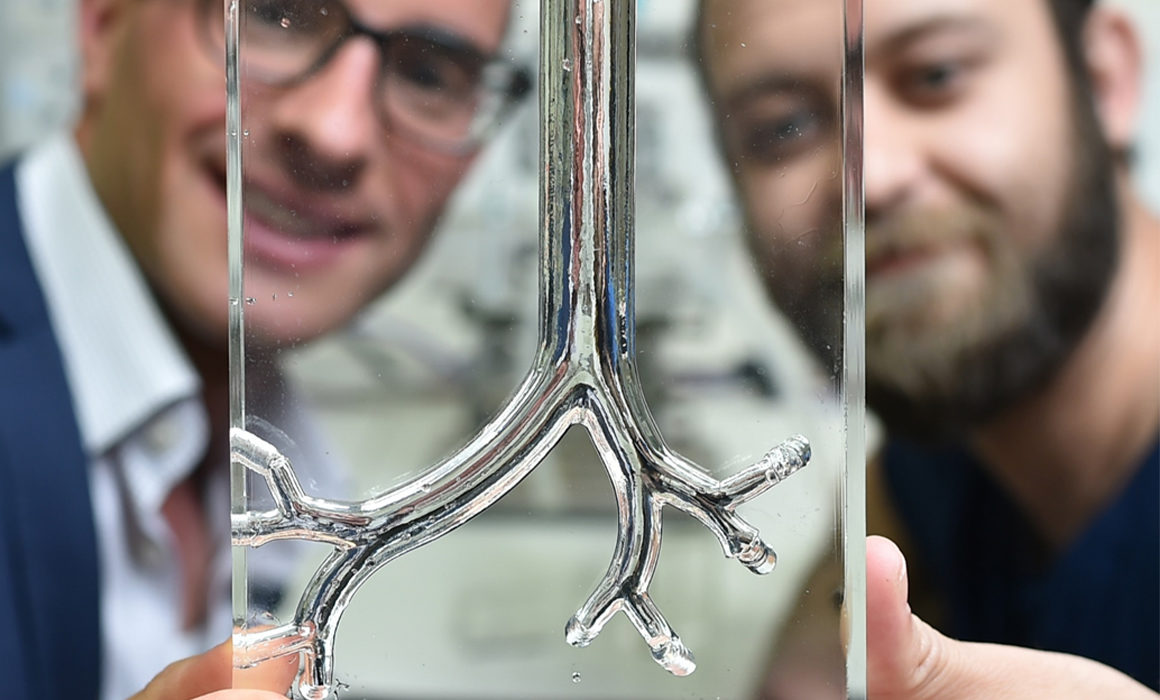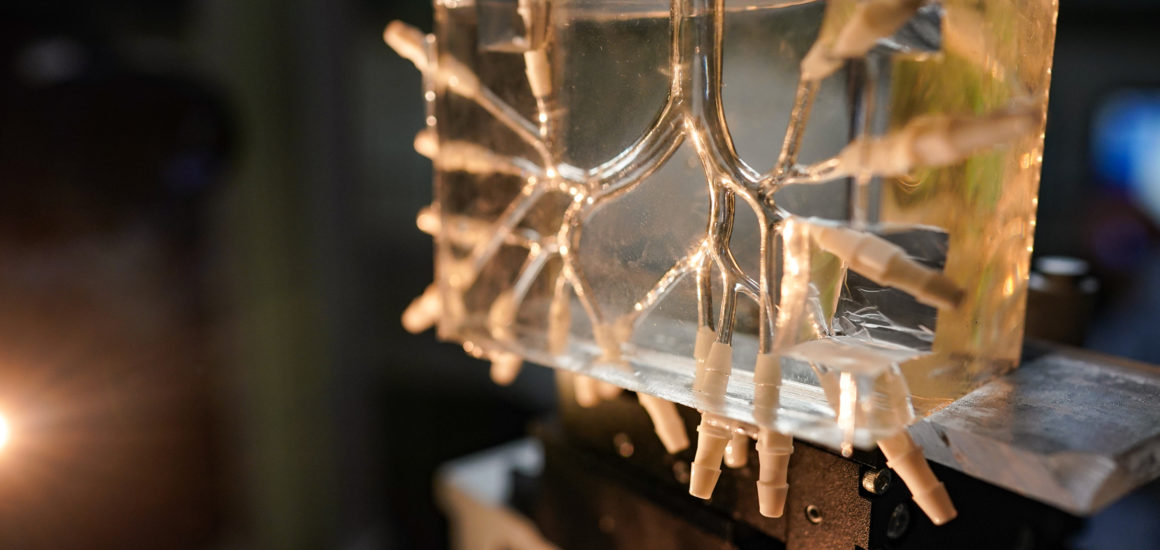Technion Professor Josué Sznitman and his team have developed an innovative pulmonary treatment for treating Acute Respiratory Distress Syndrome (ARDS), which is recognized as the leading cause of mortality in COVID-19 patients.
To date, there is no existing therapy to treat ARDS patients. These patients undergo assisted ventilation and oxygenation, oftentimes under intubation, in intensive care units.
One of the hallmarks of ARDS is damage to pulmonary surfactant (the liquid that coats the surface of alveoli in the lungs). Surfactant has many roles, but perhaps most importantly it reduces the forces required for breathing. While research is ongoing to understand COVID-19, it was recently shown that the virus kills the epithelial cells that secrete surfactant inside alveoli, after binding to a receptor (called ACE2) on the cell’s surface. Prof. Sznitman’s team hypothesizes that surfactant depletion may be particularly severe in COVID-19-related ARDS.
Surfactant Replacement Therapy (SRT) is used to treat a similar type of ARDS that affects preterm newborn children, whose immature lungs lack pulmonary surfactant. In SRT, liquid surfactant is injected into the neonate’s lungs. However, this delivery method has been highly ineffective in adults because of differences in lung size. In larger lungs, liquid instillations quickly drain into pools, drowning some lung regions and leaving others entirely untreated.
Prof. Sznitman’s invention, known as Liquid Foam Therapy (LIFT), is intended to dramatically improve the distribution of surfactant across the lungs. By delivering medications via a foam, medication can be delivered homogeneously into the lungs and, importantly, in large doses.
In their experiment with rats, those treated with LIFT recovered to a healthy state within 15-30 minutes, with no adverse events. As rat lungs are too small to demonstrate improved distribution that is critically sought in adult lungs, the team used ex vivo experiments in adult-sized pig lungs to show how LIFT spreads homogeneously compared with liquid administration.
The team is now in a race to construct a fully functional delivery device and move to a preclinical in vivo study in severe ARDS models in pigs. If successful, the researchers will pursue the first clinical trials of the therapy, in an effort to accelerate development of a treatment.



